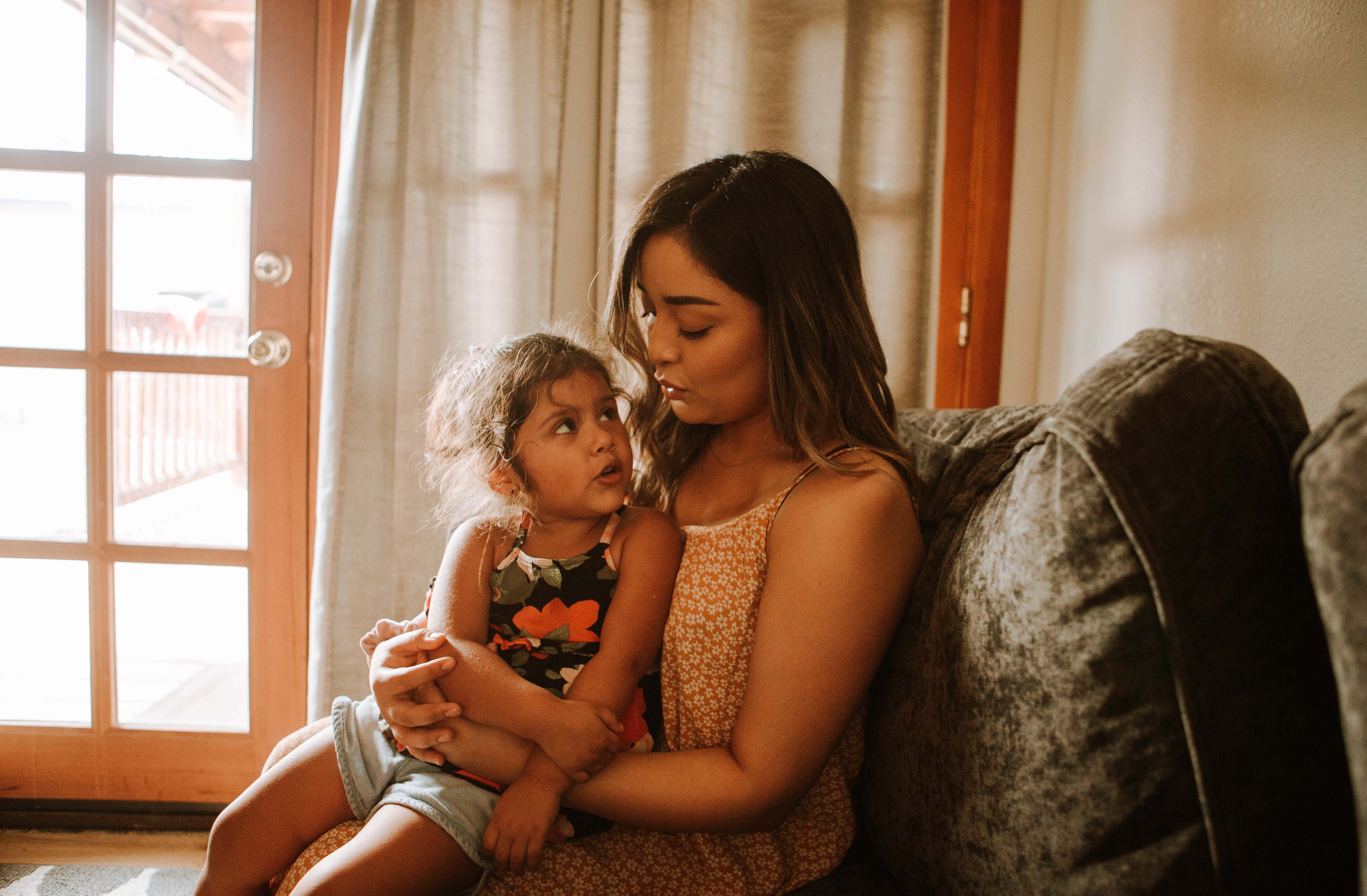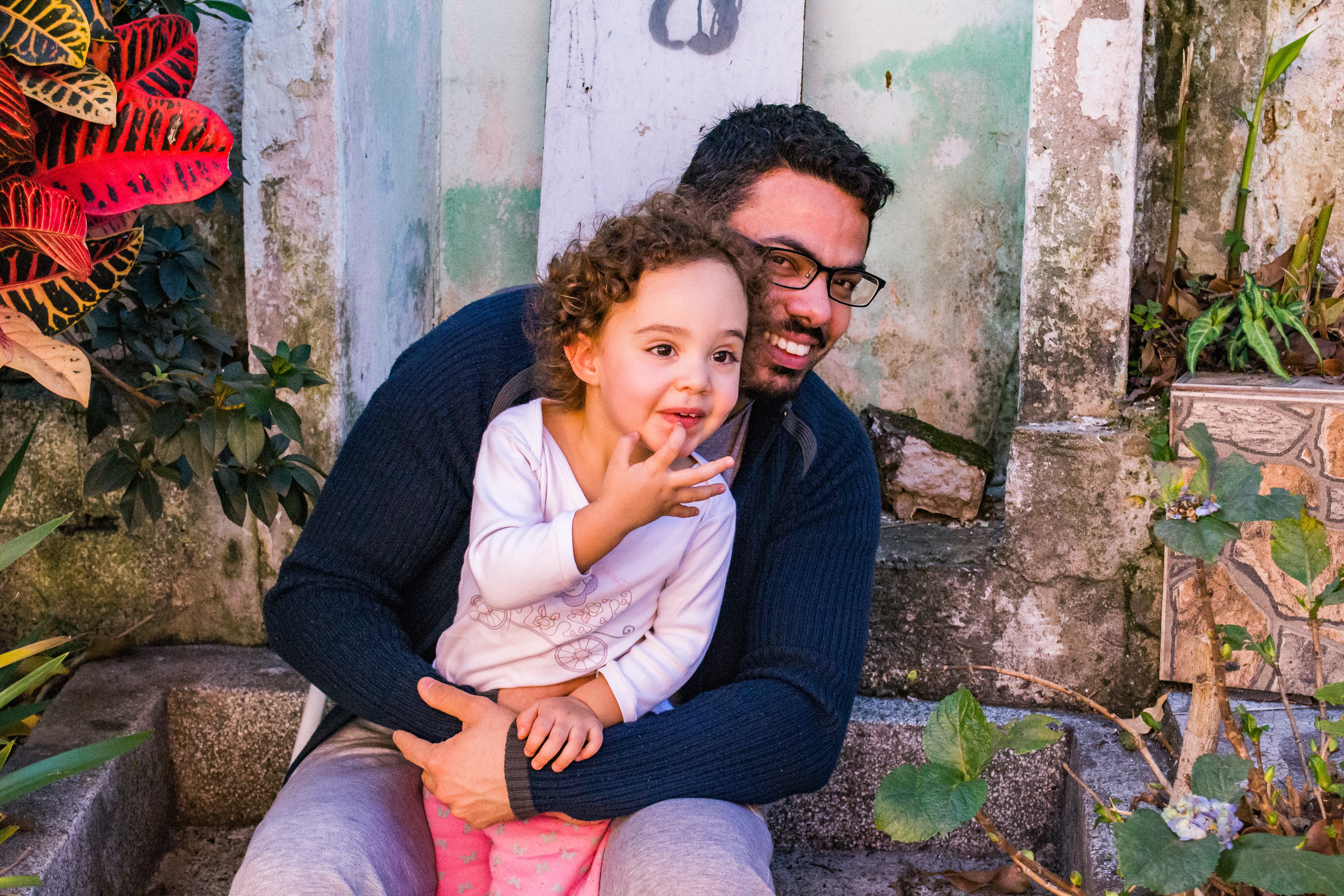Talking to kids & teens about abortion.

Following the Supreme Court’s decision to overturn Roe v. Wade last Friday — ending the constitutional right to abortion for U.S. citizens that the case had previously maintained since 1973 — you may be wondering how to broach the topic of abortion and reproductive rights with your kids. When is it appropriate to teach kids what abortion means? How should you spark the discussion?
First things first, understand that with the latest news coverage, chances are high that your kids are already hearing something, whether it’s over-hearing a short snippet of info from the radio, or navigating responses on social media.
If your kids are asking questions, then they’re not too young to know the answers. And it’s okay if you don't have all the answers right away. “I don’t know” is a 100% valid response. It’s okay to take time reflecting & researching in order to revisit things later.
Next, beyond the scope of the Supreme Court’s decision and the following news cycle, talking to kids about abortion is an important part of educating them about sex and reproduction.
Sex ed is about more than just explaining the “birds and the bees” — it involves talking about consent, bodily autonomy, puberty, healthy relationships, the responsibilities of being a parent, and factors like birth control and abortion that tie into the decisions someone can make around sex. It’s important to talk to kids about all of these components so that they know how to make the choices that are right for them as they grow up.
And it’s never too early (or too late) to talk about sex and reproduction with an age-appropriate approach.
The Guttmacher Institute estimated in 2017 that 23.7% of women will have an abortion by age 45 — nearly 1 in 4. Why do we bring this up? Because abortions are not an uncommon experience. If your child befriends at least 4 women in their lifetime, then statistics suggest that at some point, they will know someone who’s had an abortion.
According to an ACLU report, 31% of teenagers who become pregnant have an abortion, and 61% of them discuss their decision with at least one parent. So, talking about abortion with your kids matters.
If you’re still on the fence about whether or not abortion is an age-appropriate topic, know this: talking about sex will not encourage young people to start having sex at a younger age. Neither will talking about abortion make young people start having sex any sooner because they think there’s little to no risk in doing so.
In fact, teens rate their parents as the #1 influence over their decisions about sex, and teens who do talk to their parents about sex are more likely to wait until they’re older to start having sex and make safer choices (like using condoms and birth control) when they do.
Above all, know that starting an honest, open dialogue with your kids now will establish a sense of trust between you that will stick with them as they continue to grow.
So, here’s how to get these critical conversations started.
Reflect on your own emotions.
Understand that whether this is the first time you’re introducing abortion to your kids, or whether you feel this is the right moment for a check-in, you’re fielding the conversation in a very challenging and charged context, and that can make talking about it much more difficult.
Before talking to your kids, take time to check in with yourself and process your own response. Try to approach the conversation in a regulated state. Consider reaching out to a trusted friend to talk things through pre-kiddo convo, or finding (and utilizing) an outlet for your emotions before you begin talking.
Build on previous conversations.
Think about the conversations you’ve had so far with your kids about sex and reproduction. Do your kids know the basics about how pregnancy works? Do they know the right language for different body parts? Do they understand that sex happens outside of reproduction, and that pregnancy isn’t always an intended result? Do they know about birth control and contraceptive options?
It may be difficult to understand what an abortion is, exactly, and why someone might need one without a basic grasp of reproduction and sexuality.
Depending on what you and your kids have talked about until now, this may just be a golden opportunity to kick-start a larger conversation about sex and reproduction with your kids. If you’ve already laid a foundation for talking about sex & reproduction with your child, then this is a key opportunity to build on it further.
Let your little ones lead.
Whether your kids approach you with a question, or it’s you getting the ball rolling, a great way to begin the conversation is with a few open-ended questions directed at your child to gather information about what they already know.
This will help you gauge where their level of understanding is already at, and clue you in on what they might have picked up so far from outside sources.
You could try asking:
“Do you know what abortion means? What have you heard about it so far?”
With older kids, these open-ended questions can be a good way to learn more about their thoughts and feelings about abortion. Try asking questions like:
“What do you think someone might do if they didn’t want to be pregnant?”
“Why do you think someone would get an abortion?”
“What do you think about that decision?”
Explain things simply.
When it comes to knowing what’s appropriate to talk about for your child’s age, where they’re at developmentally matters much more than how old they are.
You know your child best, so based on what you’ve discussed about sex and reproduction so far, and how well they were able to grasp those concepts, follow a similar approach here. With little kids, a good rule of thumb is to use the simplest language possible and see what questions follow.
Here are a few examples of what that might look like.
The what: “An abortion is what happens when someone is pregnant but they don’t want to be pregnant anymore. People can take medicine or have a surgery that ends their pregnancy, and that’s called an abortion.”
The why: “Some people might have an abortion because they’re not ready to have a baby. Babies are a lot of responsibility, and they can be really expensive. Some people may feel that they can’t afford to have a baby right now. Sometimes, having a baby can put someone’s health at risk, and they may need to have an abortion in order to protect themselves.”
Tie in bodily autonomy.
At their core, reproductive rights are about bodily autonomy and the rights people have to decide what they can do with their bodies.
Bodily autonomy and consent are important topics to start bringing up with your kiddos at a young age anyway, and you can either use those conversations as a springboard to talk about abortion, or use your conversation about abortion to open up a larger dialogue about reproductive rights and bodily autonomy more broadly.
Talk about what it means to have the ultimate authority over what happens with your body. Teach kids that their own bodies belong to them, and no one (even grown ups or people they like) should be able to do things to their bodies that make them uncomfortable or upset.
Address current events.
Your kids may be seeing some strong and politically charged messaging around abortion right now — including messages that they or your family may not agree with. Kids may see a lot of anger and frustration on both sides of the split, either in the media or from their friends. And because we all know that kids love to ask why, you may want to prepare for some challenging why’s as your kids try to understand the powerful divide this topic has created between people in the U.S.
Depending on your child’s age, for example, you could explain that people have different ideas about when a fetus becomes a baby and that impacts whether or not people think ending a pregnancy is OK. Share your own values, and ask open-ended questions about your child’s. Talk about the Supreme Court’s decision and what it means, and give kids the space to share their own reactions.
Be there to listen to whatever thoughts and feelings that they want to share. Make sure that they understand that ultimately, it’s up to them to decide what they think about the topic, but reassure them that you’ll always be there to answer any questions they might have as they continue to learn and grow.
Photo by Omar Lopez on Unsplash.
For more guidance on talking to kids about sexuality and reproductive health, we invite you to read How to Talk to Kids & Teens About Sex, Teaching Kids About Consent, and Teaching Kids About Healthy Relationships on the maro parents app.

.jpg)